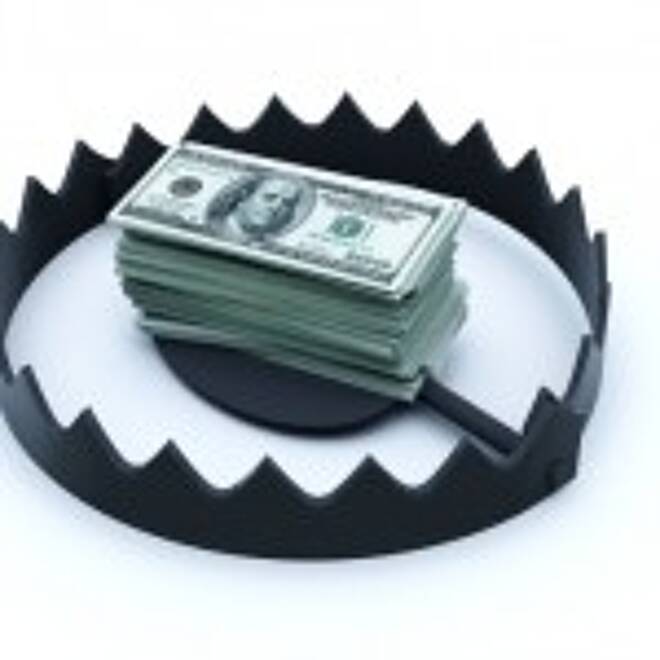Advertisement
Advertisement
What Really Bothers Me About this Stock Market
Updated: Mar 6, 2019, 10:24 GMT+00:00
Time and time again, we have key stock indices lure investors into bets they shouldn’t be taking. Examples of this are many, but to name a few of these
Time and time again, we have key stock indices lure investors into bets they shouldn’t be taking. Examples of this are many, but to name a few of these instances: Black Tuesday, or often referred to as the Wall Street Crash of 1929; the Stock Market Crash in 1973; Black Monday in 1987; the “Dot-Com” Bubble in 2000; and the most recent financial crisis starting in 2007.
In all of these instances, before the stock market destroyed the wealth of investors, one common thing happened: the stock market moved much higher on a lack of fundamentals to the point that irrationality took over. In all cases, the theme of stock prices will rise even further because “this time is different” prevailed.
When I look at the key stock indices today, it’s the same thing all over again. Key stock indices are luring investors back in; stocks are a safe bet once again. In fact, this is hands-down the biggest bear trap I have ever seen.
Optimism among investors and stock advisors is very high. The old adage “don’t fight the Fed” prevails. Investors are getting into the market because they don’t want to miss out on future gains. Stock advisors are yelling “key stock indices are going higher.”
According to the prominent timing indicator of key stock indices called the Advisors Sentiment by Investors Intelligence, the number of bullish stock advisors is increasing, and those stock advisors who hold bearish views on the key stock indices are declining in numbers. In fact, recently, they hit their lowest level in 2013. (Source: Investors Intelligence, October 30, 2013.)
As readers of Profit Confidential know, I still keep a pessimistic view on the key stock indices as most fundamental factors that are needed to propel a real bull market in key stock indices are simply missing.
Corporate earnings will grow this year at their lowest level since 2009. Revenue growth at public companies is almost non-existent. Companies are buying back stock at a record pace to boost per-share earnings. The U.S. economy is so terrible, the Federal Reserve can’t stop printing money for the fear the markets and the economy will collapse. Economic growth is terrible; the number of poor people in the U.S. economy is at a record high.
But here’s what’s really bothering me about the stock market…something I’m not seeing many analysts write about. I’m talking about the significant decline in trading volume on the markets.
Since March of 2009, when the current rally started, volume on key stock indices has been falling hard.
The table below lists the average monthly trading volume of the S&P 500 since 2008 and the percentage change from the previous year.
| Years | Volume | % Change From Previous Year | ||
| Average Volume per month in 2008 | 86,498,468,181 | |||
| Average volume per month in 2009 | 96,455,269,035 | 11.51% | ||
| Average volume per month in 2010 | 81,893,671,595 | -15.10% | ||
| Average volume per month in 2011 | 69,701,285,888 | -14.89% | ||
| Average volume per month in 2012 | 55,849,737,899 | -19.87% | ||
So far this year, volume is much lower than the previous years. In the first nine months of 2013 (January to September), the average monthly volume on the S&P 500 has been 49.02 billion shares. If this number remains the same, then the volume on the S&P 500 will be 12.21% lower.
My suspicion surrounding the big advance that key stock indices have enjoyed since 2009 continues…
The sentiment of those who are closest to the public companies, the management, is suspect.
The Conference Board and PwC Measure of CEO Confidence in the third quarter plummeted 13%. The measure of confidence of CEOs of companies stood at 62 in the second quarter, then plunged to 54 in the third quarter of his year. (Source: Conference Board, October 9, 2013.)
Those who have studied the history of the market will agree with me on this: the days of irrationality are numbered.
About the Author
Advertisement
